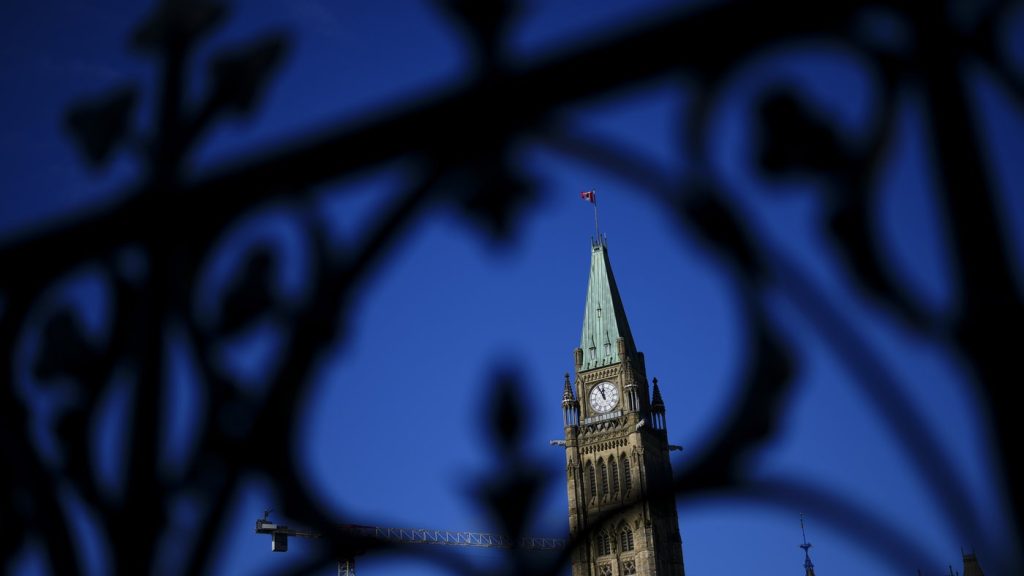Kentucky GOP lawmakers remove Democratic governor’s role in filling US Senate vacancies

Posted Apr 12, 2024 06:37:12 PM.
Last Updated Apr 12, 2024 07:24:52 PM.
FRANKFORT, Ky. (AP) — Republican lawmakers in Kentucky on Friday removed the Democratic governor from any role filling future U.S. Senate vacancies — a move supporters said was unrelated to recent scrutiny about the health of the state’s senior senator, Republican leader Mitch McConnell.
The GOP supermajority Legislature easily overrode Gov. Andy Beshear’s veto of the measure. The legislation calls for a special election to fill any Senate vacancy from the Bluegrass State. The special election winner would hold the seat for the remainder of the unexpired term.
“The people should decide who a United States senator is by election always,” House Majority Floor Leader Steven Rudy, a Republican and the bill’s lead sponsor, said during a brief House debate Friday.
The Senate succession bill moved through the Legislature at a time of pending transition for the 82-year-old McConnell. In February, the venerable Kentucky senator announced he will step down from his longtime Senate leadership position in November.
Aides said McConnell’s announcement was unrelated to his health. The senator had a concussion from a fall last year and two public episodes where his face briefly froze while he was speaking.
How a Senate vacancy is filled carries greater importance at a time when the Senate is closely divided along partisan lines. In 2021, GOP lawmakers in Kentucky ended the governor’s independent power to appoint a successor. Now they’ve completely cut the governor out of filling a vacancy.
The Senate succession bill was among a cluster of measures rejected by the governor. Republican lawmakers spent much of Friday overriding those vetoes.
They swept aside the veto of a criminal justice bill that would impose harsher sentences for a range of crimes. Beshear said it would saddle the state with sharply higher incarceration costs and criminalize homelessness by creating an “unlawful camping” offense.
Lawmakers also overrode the veto of a measure promoting nuclear energy in coal-producing Kentucky.
Beshear said he supports an “all-of-the-above” energy policy that includes nuclear energy, but objected to how members would be selected to an advisory board assigned to nurture nuclear power development. Many of them would be designated by private sector groups, bypassing the appointment authority of the governor or other state constitutional officers, Beshear said.
On the Senate succession bill, McConnell spoke favorably about it during a recent radio interview in Louisville, calling it a good idea that would let voters decide on the successor if a vacancy ever occurred.
McConnell says he will serve out his seventh Senate term, adding in the same interview on WHAS-AM: “I don’t know how many times I can say that. But that’s exactly what I’m going to do.” He offered no hints whether he will seek reelection in 2026, but McConnell has continued raising campaign funds for himself.
Rudy previously said the legislation has nothing to do with McConnell but instead reflects his policy stance on how an empty Senate seat should be filled.
Rudy has said he’s talked about changing the way a Senate vacancy is filled for more than a decade, since the conviction of former Illinois Gov. Rod Blagojevich for crimes that included seeking to sell an appointment to Barack Obama’s old Senate seat. Rudy’s district in far western Kentucky borders Illinois.
Beshear, who won reelection last year over a McConnell protege, noted that lawmakers had changed their mind for the second time in recent years on how to fill a Senate vacancy.
“Prior to these maneuvers, the same system had been in place since 1942,” Beshear said in his veto message. “This administration deserves the same authority as previous administrations.”
The criminal justice bill that GOP lawmakers backed with their override vote would make a multitude of changes to the state’s criminal code, enhancing many current penalties and creating new offenses.
One prominent feature of the bill creates a “three-strikes” penalty that would lock up felons for the rest of their lives after committing a third violent offense. It adds to the list of violent crimes that require offenders to serve most of their sentences before becoming eligible for release.
Supporters portrayed the bill as a necessary policy shift that would do more to hold criminals accountable and to make communities safer. Opponents warned the measure would carry a hefty price tag for taxpayers with no assurances that the tougher approach would lower crime.
The fiscal note attached to the legislation said the overall financial impact was “indeterminable” but would likely lead to a “significant increase in expenditures primarily due to increased incarceration costs.”
Bruce Schreiner, The Associated Press








